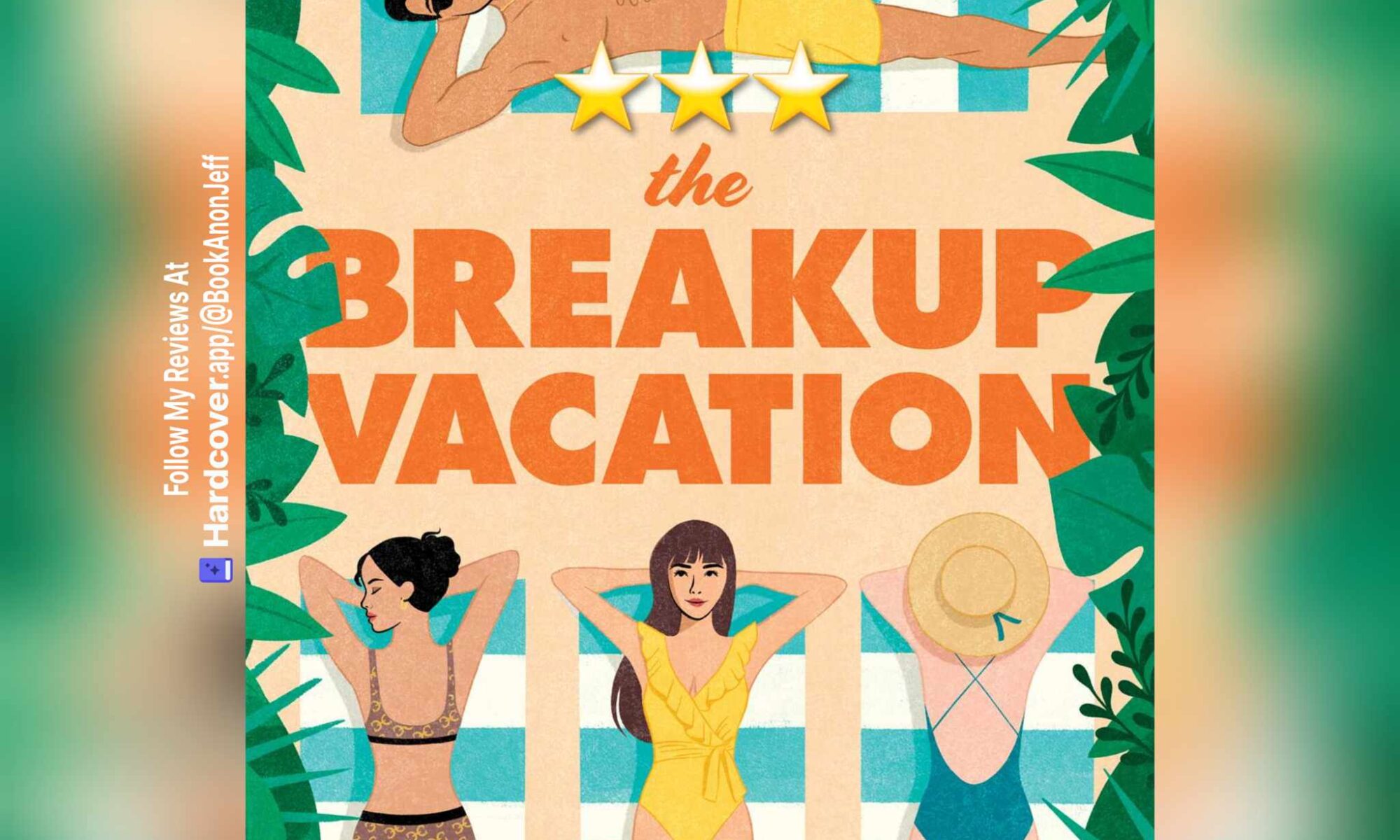Racism And Misandry Mar Otherwise Genuinely Fun And Funny Tale. This tale was marketed as essentially an updated Forgetting Sarah Marshall for more Zoomer sensibilities, and that kind of thing absolutely shines through. There is a shit ton of drinking and graphic on screen sex of the XXX damn near erotica level in a tropical location where the main cast has gone to “escape from” – but secretly damn near stalk – an ex of one of them. Ok, close enough to the movie – which, IIRC, MTV Films produced (MTV is also publishing this book).
So many people in the reviews here note misogyny, and many make their cases quite well. And yet there is also quite a bit of misandry here, where even the “good” males are only “good” because they agree with literally everything the females say and don’t genuinely challenge any of their preconceptions.
Even more problematic for me personally was the blatant anti-white racism. Including this line in particular:
“I don’t usually judge people, but when a white person’s like, “My family goes back six generations in Texas”, I’m definitely side eyeing them ‘cuz you know which side of the Civil War they were on.”
My family doesn’t go back “six generations in Texas”, but it *does* go back in the South to the Colonial era before the US even existed. Yes, that’s right – some of my ancestors came in via Virginia, not New York. One of them even died during the Civil War – *defending* the Union, at a battle in northern Alabama. I grew up with the scars of the war criminal terrorist bastard William Tecumseh Sherman’s Atlanta Campaign literally all around me, in the town that is the hometown of both the first female and last slaveholding – same person – US Senator. Her land, as described in her journals, was just a couple of miles from the trailer park I spent the first decade of my life in.
No, Ms. Gracia, you most certainly do NOT know “which side of the Civil War” such a person’s family was on, and to make such a claim is pretty fucking racist.
And yet the misandry and racism, while prevalent throughout the text, only serve to deduct a single star combined, as while prevalent they were also somewhat minor in that it wasn’t on every page. While I know others may claim otherwise, perhaps justifiably, that wasn’t my own experience with the text, at minimum, and I do know other reviewers who will (and I think here did?) 1* a book for any modicum of bigotry, even a single line, I try to judge the work as a whole.
And speaking of judging the work as a whole, this has to be one of the thinnest “romances” I’ve read in quite some time. Indeed, the entire “relationship” is more about the aforementioned damn near erotica sex and happening into each other while one of them is on vacation than anything, and the actual romance elements, such as they are, almost feel tacked on to ensure that it can be claimed to be a romance and satisfy RWA (and potential censors, if this ever becomes a movie) rules rather than actually, you know, building a genuinely romantic story. This was thus the other star deduction, and I can honestly say that across my 1100+ reviews I’ve written since 2018 alone, I genuinely think this is the first time I’ve ever deducted a star for such a reason. That I have here is telling of just how justified I think this reason in this book is.
Finally, the fact that a *fiction* book got 3* from me, given my “subtractive method” of rating where every single book starts out at 5* and I must have specific, describable, and preferably objective-ish reasons for deducting stars, should tell you just how problematic I personally think this book is. I think I’ve given less than a handful of fiction books 3* or less across those aforementioned 1200+ reviews, and yet this book managed to get on that particular list.
If you want a book for a tropical getaway, there are better books out there. If you want a book for a tropical getaway *and agree with the comments these characters make* – which is entirely your right – then yes, this book may be for you. But despite being genuinely funny at times, and despite my own completionist nature when it comes to book series, if I give Ms. Gracia’s books another try it will mostly be down to trying to give *everyone* a second chance at all times. And honestly, I’m not sure at this time that I would do that here.
Not recommended.
This review of The Breakup Vacation by Anna Gracia was originally written on March 5, 2024.


